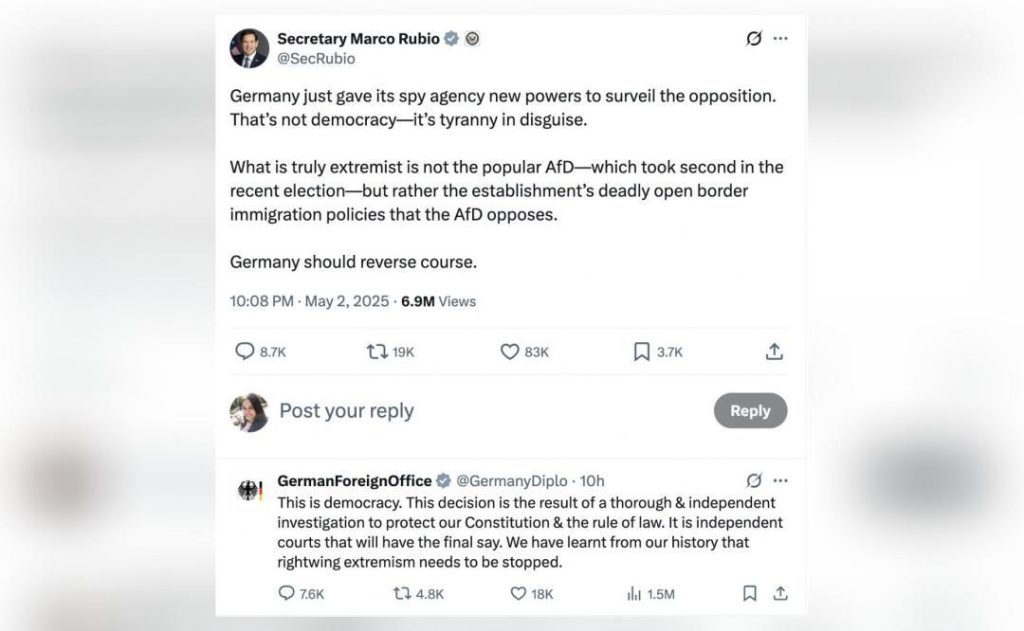
US Secretary of State Marco Rubio and German Foreign Ministry Clash Over AfD Party’s ‘Extremist’ Tag
In a recent development, US Secretary of State Marco Rubio and Germany’s Foreign Ministry have clashed over the German government’s decision to label the far-right Alternative for Germany (AfD) party as “extremist”. The controversy has sparked a heated debate, with Rubio accusing Germany of enabling “tyranny in disguise” and the German government defending its decision as necessary to protect the country’s Constitution.
The rift began when Germany’s domestic intelligence agency, the Federal Office for the Protection of the Constitution (BfV), classified the AfD party as “extremist” due to its alleged anti-constitutional behavior. The decision was based on an investigation that concluded the party’s ideology is incompatible with the principles of the German Constitution.
However, US Secretary of State Marco Rubio took issue with the German government’s decision, terming it an “attack on democracy” and a “dangerous precedent”. In a series of tweets, Rubio accused the German government of enabling “tyranny in disguise” by labeling the AfD party as “extremist”. He also questioned the motives behind the decision, suggesting that it was a deliberate attempt to suppress political dissent.
Rubio’s remarks sparked a robust response from the German government, which defended its decision as necessary to protect the country’s Constitution. In a statement, the German Foreign Ministry replied that the decision regarding the AfD party was the result of a thorough investigation aimed at protecting Germany’s democratic values and institutions. The statement emphasized that the classification was not intended to restrict the AfD party’s freedom of speech or political activity, but rather to ensure that the country’s Constitution was upheld.
The controversy has sparked a heated debate in Germany, with some arguing that the AfD party’s ideology is indeed anti-constitutional and poses a threat to democracy. Others have criticized the German government’s decision, claiming that it amounts to political censorship and undermines the principles of free speech and political freedom.
The AfD party, which has been a thorn in the side of the German government since its founding in 2013, has consistently denied any anti-constitutional or extremist leanings. In a statement, the party’s leader, Alexander Gauland, accused the German government of using the “extremist” label as a tool to silence political dissent and stifle free speech.
The controversy has also drawn attention to the growing divide between the US and Germany on issues related to democracy, freedom, and human rights. While the US has traditionally been a strong advocate for democracy and human rights, Germany has been grappling with its own domestic issues related to extremism and political polarization.
In the face of this growing divide, it is essential for both countries to engage in a constructive and respectful dialogue to address their differences and find common ground. The US and Germany must work together to promote democracy, freedom, and human rights, while also respecting each other’s differences and perspectives.
In conclusion, the clash between US Secretary of State Marco Rubio and the German Foreign Ministry over the AfD party’s “extremist” tag is a complex issue that highlights the growing divide between the US and Germany on issues related to democracy, freedom, and human rights. While both countries have their own unique perspectives and approaches to these issues, it is essential for them to engage in a constructive and respectful dialogue to address their differences and find common ground.



